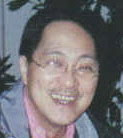GOTCHA, Published in The Philippine Star, Monday, December 3, 2007
The verdict is in. Our economy is suffering from “Dutch disease”. Too many overseas workers remitting so much dollars is strengthening the peso but weakening exports. It’s not really an ill, economists opine, so long as its effects are curbed. The Economist coined the term in 1977 when the Dutch gilder surged with discovery of natural gas in the
Left unmanaged, Dutch disease can impel de-industrialization or de-agriculture. Dutch farmers lost interest in exporting then, as Filipinos today bear the waning value of dollar earnings from call centers or electronics and food exports. Economic planners need to cushion the blow of cheap worth of dollar sales versus steady costs of peso inputs. Prescriptions to minimize Dutch disease range from delaying repatriation of boom profits to inducing savings via tax cuts. RP needs to use its earnings straight away for basic services; its taxes need sprucing, not slicing. The remedy is elsewhere: in investing in social and physical infrastructures.
In sudden booms wise nations spend on education to beef up farms and manufacturing. So education can be the way out of the crunch for call centers. Filipinos need higher training to man new business outsourcing that do not merely receive phone inquiries but more uniquely transcribe medical or legal reports, design software or produce animation. Economist Ted Haresco notes that RP leads in contact centers only because it is the second largest English speaking country. Rising labor costs, made worse by costly electricity and incomes pegged on a weakened dollar, are negating the advantage. “The government is focusing on inflation and, with budget and trade surplus, repaying costly old loans,” Haresco says. It can also avert slumps in agriculture and industry by helping enterprises and jobseekers acquire new schooling.
With the government surplus, now is also the time to build facilities that spur commerce. Recently the World Bank scrapped $232 million in road repair loans due to bidding irregularities. But the project cannot stop; officials must get the amount from other ways. Government has long been talking about reviving a North Railway from
Not only roads and railways but also air and seaports need to be put up fast. The transport department has listed at least 168 cities and islands in dire need of new roll on-roll off piers. Yet astonishingly the target to build them is a long way off in 2024. That’s because most port constructions, as with airports, depend on Japanese aid instead of tax takes. Seventeen years’ wait for 168 sites to become trade hubs is simply too long. It ignores what Adam Smith wrote in the 1700s: “As by means of water-carriage a more extensive market is opened to every sort of industry than what land-carriage alone can afford, so it is upon the sea-coast, and along the banks of navigable rivers, that industry of every kind naturally begins to subdivide and improve itself, and it is frequently not till a long time after that those improvements extend themselves to the inland parts of the country.”
* * *
Battle was still raging in Makati Thursday when a comic text spread: “Lessons from today’s events: (1) you can walk from the Makati trial court to Peninsula Hotel; (2) teargas is more potent than machineguns; (3) a tank can fit into a hotel; (4) reporters can be arrested too; (5) curfew is ‘in’ again.”
Joking aside, lessons blare why Sen. Antonio Trillanes and Brig. Gen. Danilo Lim’s standoff failed to oust a President:
No people power came. The timing was off. As Sen. Miriam Santiago noted, not only was it raining so people stayed indoors, but the following day also was a holiday to start a three-day weekend outing. And it’s almost Christmas; Filipinos hate spoiling the season. Political upheavals occur after Christmas: the First-Quarter Storm of 1970, EDSA-1 in Feb. 1986, EDSA-2 in Jan. 2001.
Since there was no people power, the military component fizzled out. Lim reportedly admitted on interrogation that several units had agreed to join, but obviously didn’t. And because there was no military uprising, cops were able to swiftly subdue the handful that holed out at The Pen.
There was also no Church component. Religious leaders who have long shown discontent with the administration were not on hand to rally the faithful to march. It’s unsure if they can match the stature of Cardinal Jaime Sin who called out the crowds in 1986 and 2001.
The rebels lacked cash. Apparently not even the oppositionist mayor of
* * *
The U.P.-Samapil reunion concert pushes through this Saturday, Dec. 8, for an evening of music and poetry reliving the members’ cultural works. Paul Galang, Reuel Aguila, Ani Montano, Raf Aguila, Mannix Pablo, and Chuck Manansala, among others, will present originals and adaptations. Between performances, Samapil’s commemorative album and participation in the U.P. centennial will be finalized.

